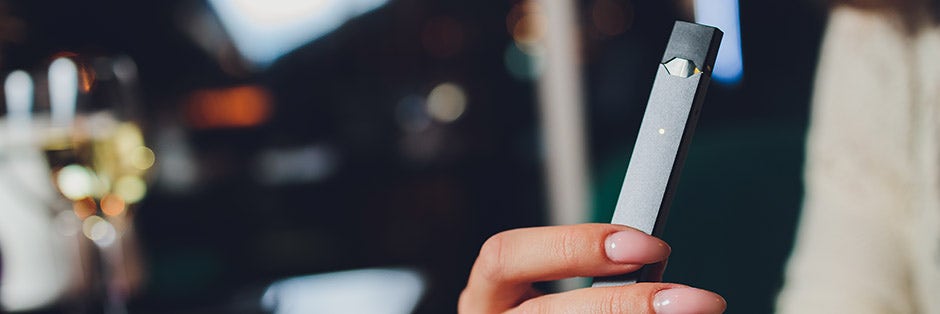JUUL Vapes to be Pulled from Shelves in US after FDA Ruling
The FDA have made the decision in hopes of curbing under-age vaping

It's been a subject of hot debate in the US over the past couple of years, but the FDA has finally made a move to remove JUUL from US markets. The Food and Drug Administration (FDA) has spent two years reviewing information regarding JUUL and the rise in youth vaping in the US. And now a decision has been reached that all JUUL products must be pulled from shelves for “the protection of public health.” As of the 23rd of July, all JUUL products are technically banned in the US.
Who are JUUL and why is it happening?
If you are unaware of the vaping brand, JUUL Labs is an American vape company that is primarily well known for its disposable cartridge E-Cigarettes. Founded in 2015, JUUL quickly rose to the top of the US vaping market due to its innovative design and use of nicotine salts. Unfortunately, by 2019 there were reports of rising teenage vaping and JUUL devices being commonly used by this age group.
This sparked a huge movement in the US in 2020 as the FDA decreed that companies must submit their E-Cigarette products for approval. Very few have made it through the process and received a green light. To combat this restriction, many brands changed and had to remove flavoured vapes that were argued to be appealing to children. However, all efforts have been for nought as the FDA finally made the decision to refuse approval.
Since the news hit, JUUL has released a statement stating, “We respectfully disagree with the FDA’s findings and decision and continue to believe we have provided sufficient information and data based on high-quality research to address all issues raised by the agency.”
Is the problem JUUL or is it the lack of regulation in the US?
When investigations began in 2020, the Massachusetts Attorney General’s office found evidence that JUUL had purchased ad space on Seventeen magazine, Nickelodeon and Nick Jr, as well as homework sites for middle school students. Although JUUL were found to be marketing their products toward younger audiences through social media and ad space, perhaps some of the blame also rests on the US government for not establishing stricter guidelines.
In the US before the harsh crackdown, vaping was largely unregulated, not helped by the different states and their own legislation on the matter. Vaping products could be marketed just like any other and were not strictly tested to ensure their safety. In fact, the market was rife with high nicotine strengths – something that hasn’t changed today. Even with some of the recent changes this last year, many of the regulations are lax compared to other countries like the UK.
For example, in the US, nicotine strengths have no limit which means some products can contain up to 59mg/ml of nicotine - much higher than a pack of cigarettes. In contrast, here in the UK, we have a cap of 20mg/ml. It’s the same with advertising regulations; in the US, vaping products are allowed to be advertised through social media and TV, whereas in the UK it is strictly regulated. Even when vaping adverts are permitted in the UK, there is strict guidance on who these can be targeted to.
In the UK, we simply do not have the same issue of prolific underage vaping, as the US does, and it can easily be traced back to the regulations that are enforced. It is one of the main reasons why in the UK we still back vaping as a useful quit-smoking tool. The MHRA put in the early groundwork to ensure that products sold in the UK are safe and adhere to the guidelines. Guidelines that have helped cement the UK as one of the leading countries that back E-Cigarettes.
Whereas in the US, the FDA only began implementing regulations after 2016 and is adamantly working to completely cease vaping as an industry, and as a smoking cessation tool.
What’s going to happen next
For now, JUUL will be no doubt working on how to combat the order to remove their products from shelves, including an appeal of the decision. As of the 27th of June, JUUL has managed to secure a hold on the ban so that they can still continue to sell their products while appealing the ban.
Should they not manage to repeal the order, then the vaping industry in the US will certainly feel its effects. With only a handful of vaping brands so far having received approval from the FDA, it is certainly something to watch over the coming year to see what other changes may occur in the US.


 UAE
UAE







